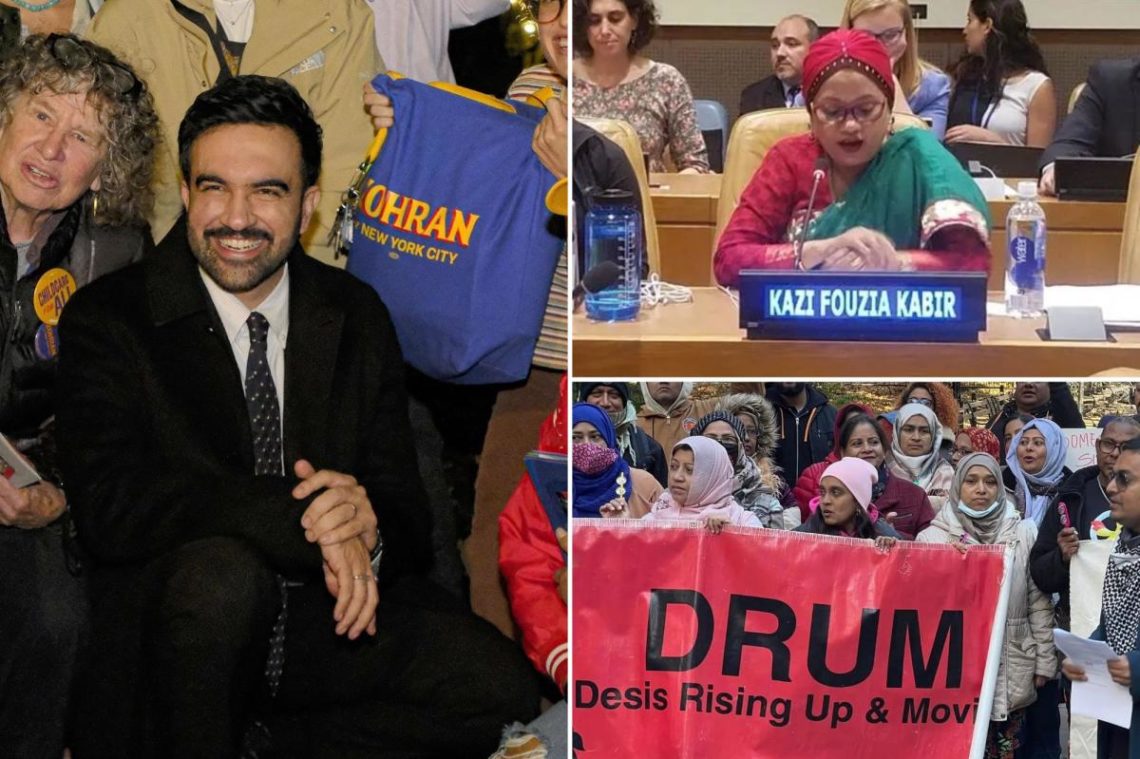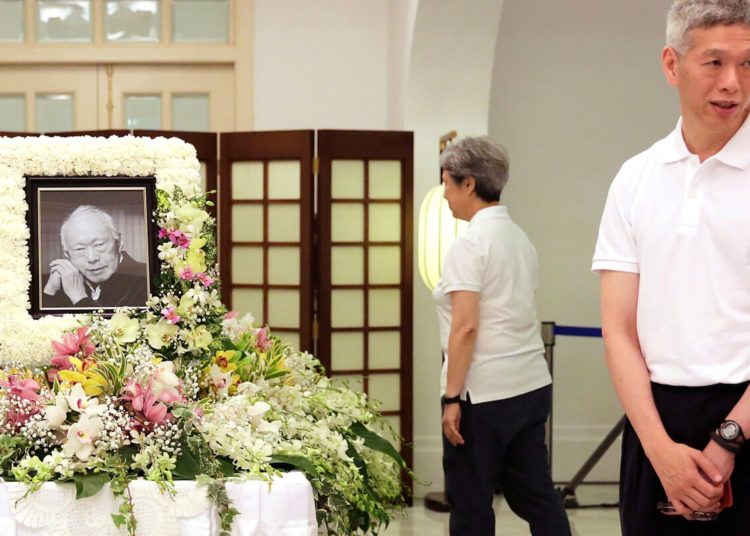Zohran Mamdani’s mayoral campaign is powered by a South Asian political machine with ties to a Pakistani radical Marxist political movement — and that foreign influence may have provided the tipping point in his primary victory, research shows.
For years, Washington has been alarmed about the prospect of foreign meddling in US elections stemming from online disinformation. Yet what if the foreign interference policymakers so fear actually ends up playing out not in dark recesses of the internet — but in broad daylight on the streets of New York City?
The immigrant-rights nonprofit DRUM — aka Desis Rising Up and Moving — and its political arm, DRUM Beats, have built what insiders now call the most effective field operation in city politics in recent memory.
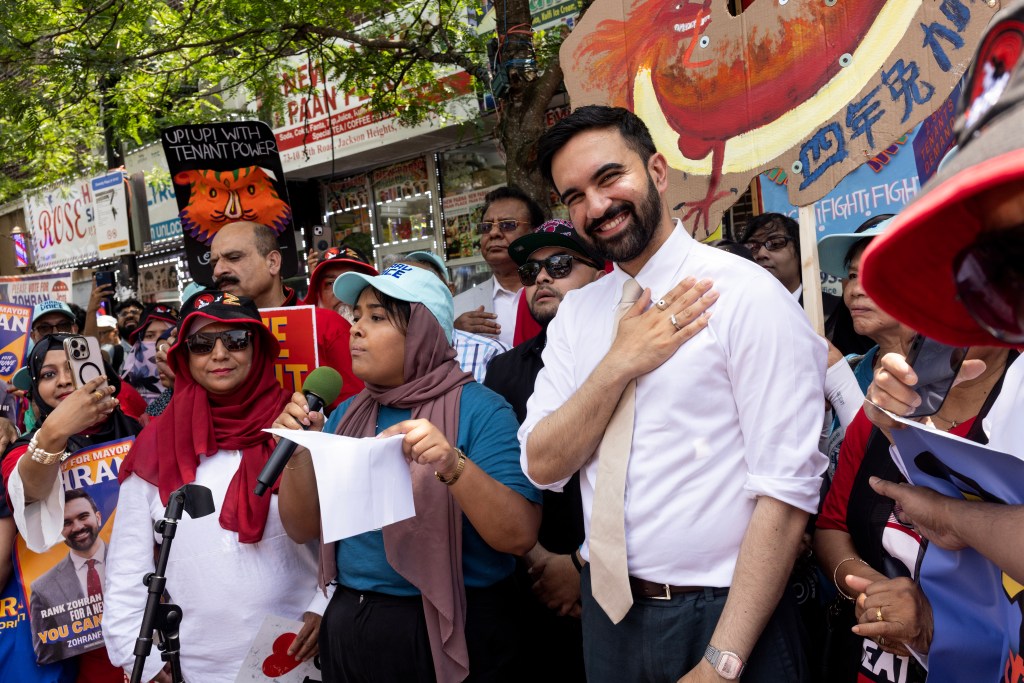
According to the group’s own post-election claims, DRUM — described on its website as a “multigenerational, membership led organization of low-wage South Asian and Indo-Caribbean immigrants, workers and youth in New York City” — helped turn out more than 150,000 South Asian and Indo-Caribbean voters in June’s Democratic primary, with Mamdani beating Andrew Cuomo 573,169 to 443,229 in the third round of ranked-choice voting.
DRUM Bangladeshi turnout jumped 13% over 2021 levels; Pakistani turnout rose 11%. DRUM bragged that “almost half of all registered Bangladeshis came out to vote.”
In a September story on DRUM, the New York Times reported that turnout among South Asians in the primary increased by a staggering 40% compared to 2021.
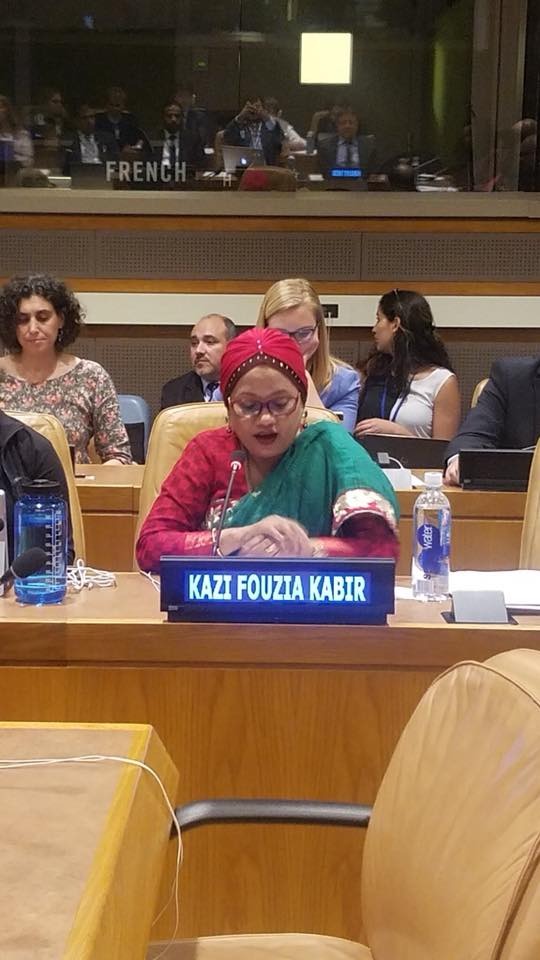
Mamdani, in an October Facebook post, cited this figure, writing, “This wasn’t an accident. From the very days of the campaign, we worked closely with organizations like @drumbeatsnyc and @caaavvoice, who canvassed more than one-third of all South Asian residents by the time of the primary. We made videos in Bangla and Urdu. We showed up everywhere, all the time. And we’re just getting started.”
That wave delivered Mamdani his margin for victory. According to a Facebook post by Bangladeshi author and community activist Quazi J Islam, Kazi Fouzia — DRUM’s director of organizing — “had been campaigning for [Mamdani] since day one.”
In 2022, DRUM’s executive director Fahd Ahmed posted on Facebook about his “opportunity to engage with Mohiba Ahmed, Raza Gillani, and Ammar Ali Jan from Haqooq-e-Khalq Party,” calling the discussions “encouraging and impressive.”
The Post has reached out to Ahmed for comment.
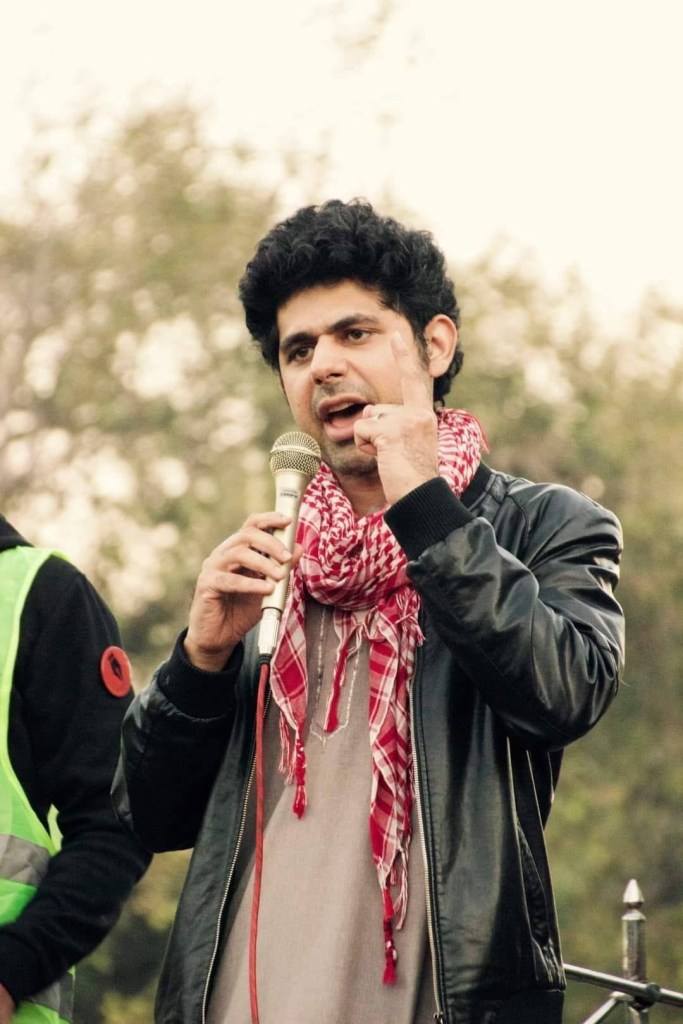
Haqooq-e-Khalq, or HKP (“Party for the Rights of the People”), is a radical socialist movement founded in Pakistan by Cambridge-educated historian Ammar Ali Jan and veteran leftist Farooq Tariq. It calls for a synthesis of “nationalist movements of oppressed nationalities” and “the socialist movement.”
Jan moves in the same global far-left network as Vijay Prashad’s Tricontinental Institute — funded by China-linked billionaire Roy Singham — and often appears with groups like The People’s Forum, which is now facing congressional scrutiny for alleged CCP influence.
DRUM has co-hosted events with The People’s Forum and joined its “Shut It Down for Palestine” protests that have taken place across the country, including numerous events in New York, Washington, California and Philadelphia, which took place after the October 7, 2023, Hamas attacks on Israel.
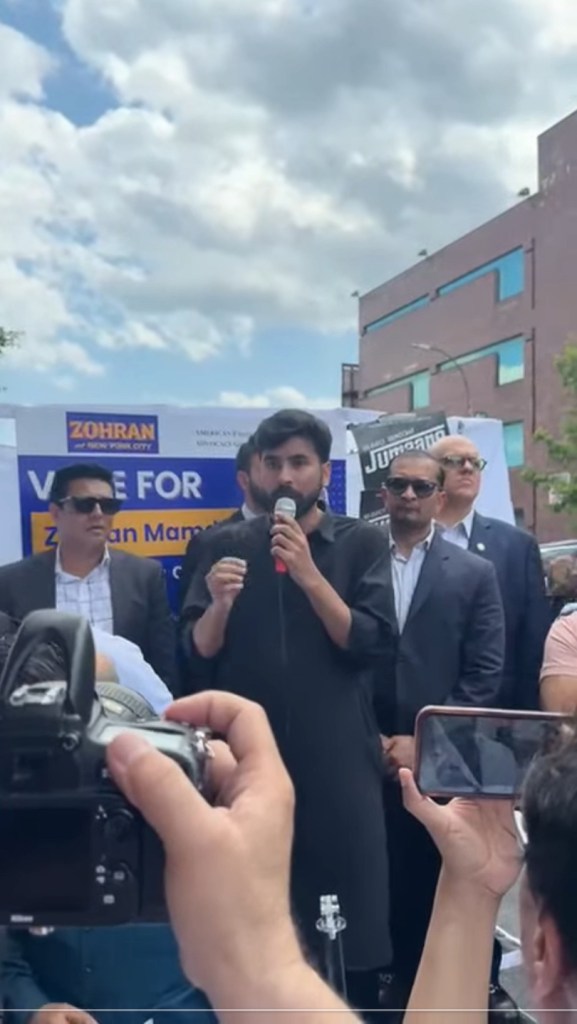
In a January 2023 Facebook post, Jan announced plans to build “a solidarity network for Pakistani activists in the US.” Three key DRUM organizers — Raza Gillani, Mohiba Ahmed and Zahid Ali — were named in the post. All would play a central role in the Mamdani campaign effort.
Gillani, a Pakistani journalist and socialist organizer, joined DRUM as a communications specialist while continuing to identify as a co-founder of the HKP. In June, DRUM posted a video of Gillani leading a campaign rally in Queens with Mamdani standing behind him.
Mohiba Ahmed, a graduate student at NYU and longtime HKP member, served as a full-time community organizer for DRUM during NYC’s Democratic primary, only to reappear weeks later in Pakistan speaking at HKP rallies.
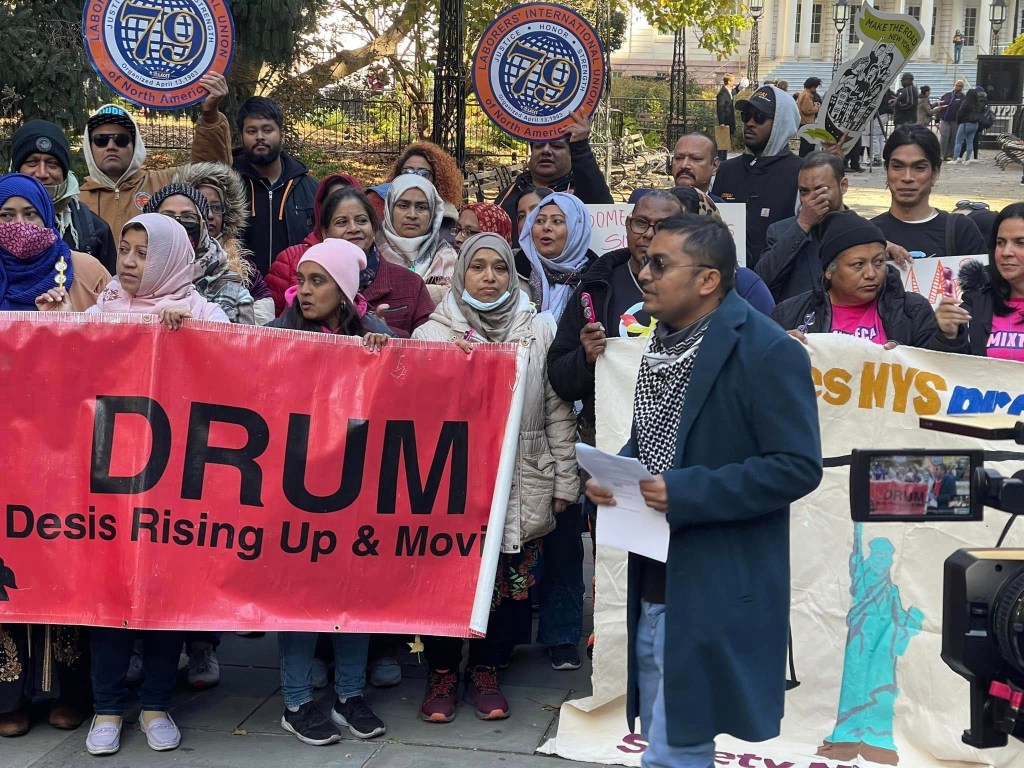
Zahid Ali, a founding member of HKP now pursuing a PhD at Rice University, was praised, in a post originally written in Urdu, the national language of Pakistan, by the party’s secretary-general Ammar Ali Jan as a “struggle partner … who played a key role in Mamdani’s victory.”
While the Pakistani network handled one flank, DRUM’s Bangladeshi director of organizing, Fouzia, led the other. Community leaders credit her personally for mobilizing entire neighborhoods.
Fouzia, who participated in a State Department exchange program in 2007, was an “undocumented,” in her words migrant in the US until, she has said, receiving asylum.
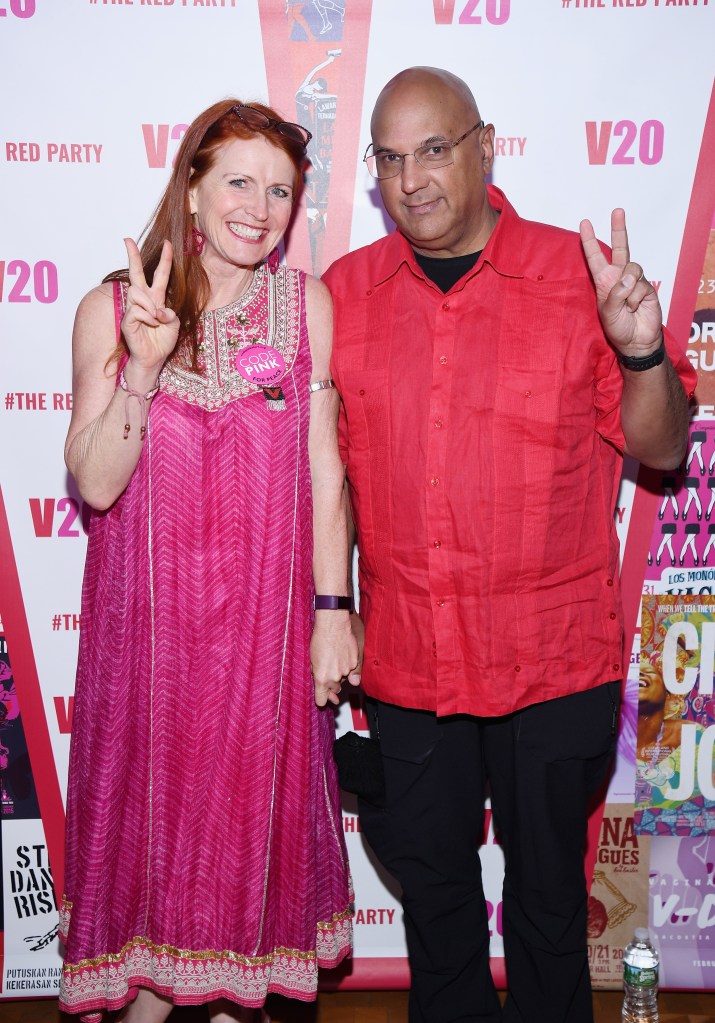
“We’re like a gang,” Fouzia told Politico in a July story about Mamdani’s primary win. “When we go to any shop, people just move aside and say, ‘Oh my god. The DRUM leaders are here.’”
The significant overlap between DRUM and DRUM Beats could pose legal liabilities as 501c(3) organizations like DRUM are barred by federal law from political campaign activity.
DRUM and DRUM Beats list the same address in Jackson Heights and have the same executive director, Fahd Ahmed. City records show Mamdani’s campaign paid DRUM Beats a total of $20,000 during the 2025 mayoral primary. Despite her campaign work, Kazi Fouzia is listed as DRUM’s director of organizing on her own LinkedIn.
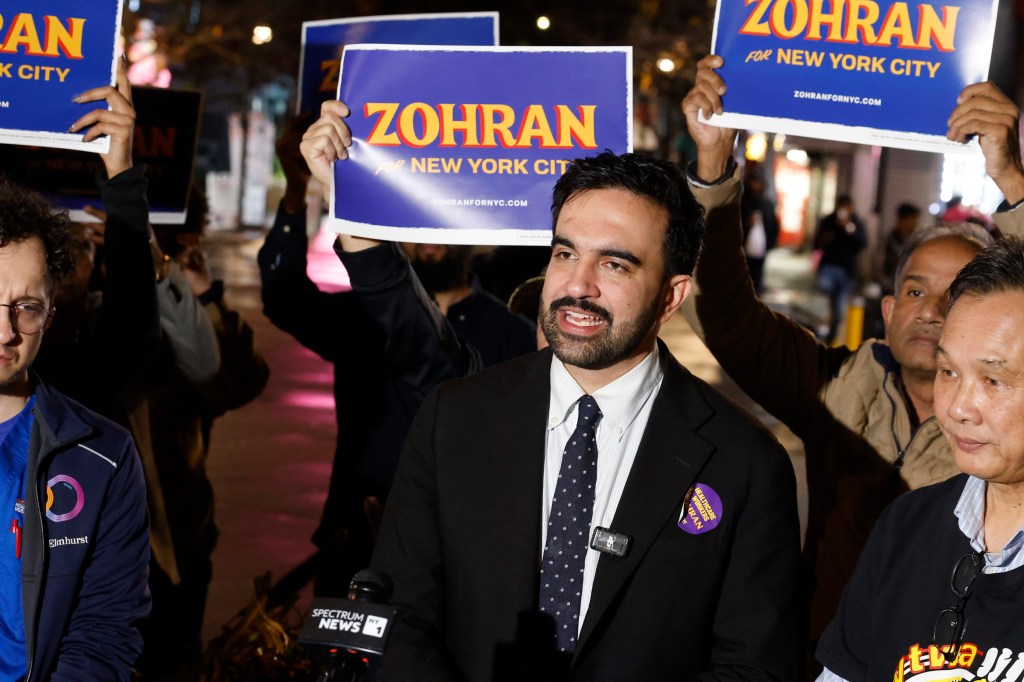
The network’s ground game also played out online. According to analytics compiled from Mamdani’s social media accounts, reviewed by The Post, between June 1 and July 1 Mamdani’s Instagram followers jumped from 213,000 to nearly three million — a 1,295% surge — while TikTok grew more than 1,000%.
As the primary’s election day neared, engagement by users in India, Pakistan, and Bangladesh outnumbered those in the US. Coordinated messages like “Let’s go bhai!” (“brother”) were repeated in more than 750 nearly identical comments on Instagram.
There’s little doubt that the organization’s influence on the primary was decisive. A 13% jump in Bangladeshi turnout and an 11% rise among Pakistani voters would easily span the gap between Mamdani and Cuomo.
The post Inside the South Asian political machine that’s used foreign influence to tip the scales in Zohran Mamdani’s favor appeared first on New York Post.
